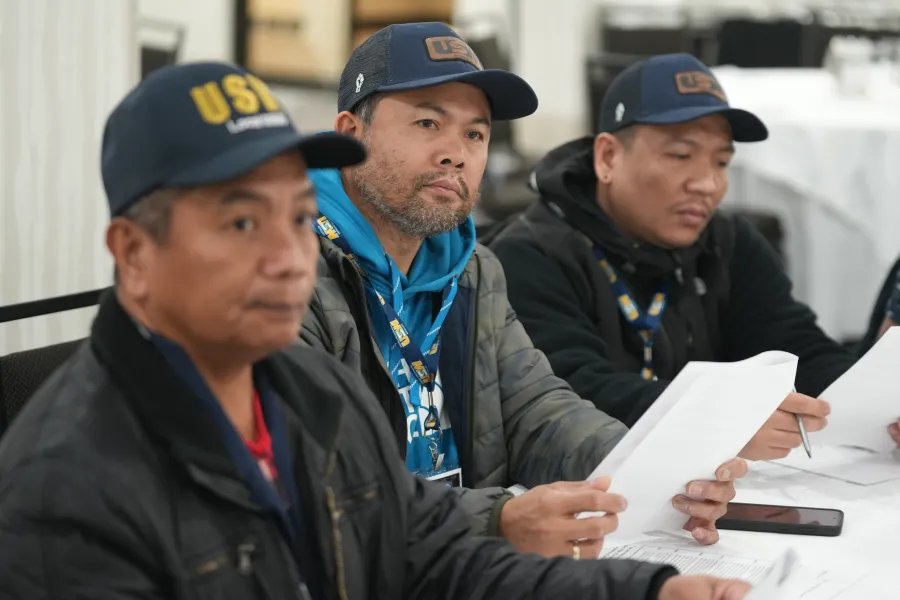Bargaining Basics

Bargaining Basics
Information on how agreements are reached and how your involvement can help win fair contracts.
What is collective bargaining?
Collective bargaining is the legal process for reaching a contract between our union and employer over important issues like wages, benefits, paid time off, health and safety, schedules and job security.
Why is having a contract important?
Bargaining a contract is the best way to ensure we have real protections at work. With a contract in place, management cannot just decide on its own to make changes like cutting wages, firing workers, playing favourites or changing schedules and holidays.
Our contracts also include a process to hold management accountable if it violates the agreement – called the grievance and arbitration procedure.
What happens in negotiations?
Negotiations take place at the bargaining table where elected bargaining committee members and staff representatives from the USW and the employer come together to put forward and discuss proposals. Both sides caucus (meet separately), make counter proposals, test out ideas and look for ways to bridge differences and ultimately try to reach a new agreement.
While the union and the employer have a mutual interest: both want the company or organization to prosper and grow. But the union and the employer may have different views on issues such as economic improvements and job security. The goal is to reach an agreement that will be mutually acceptable.
What do we cover in negotiations?
Generally, contract proposals fall into the following categories:
Economic proposals, such as wages, benefits, retirement and healthcare, or
Non-economic items, such as health and safety standards, breaks, grievance procedure, seniority and other language addressing anti-harassment and equity-related issues.
How do we get a good contract?
We win a fair contract by sticking together. Management isn’t going to just hand us anything, but our solidarity and determination give us bargaining power.
Sharing information and participating in solidarity activities show management we are strong, united and willing to fight. Management may try to divide us, but we can fight back when we work together.
When our employers see that we’re united, it puts us in a stronger position at the bargaining table.
Do members get to vote on a tentative agreement?
Union members in good standing may vote to ratify or reject a tentative agreement. Your bargaining committee may make a recommendation regarding a proposed agreement.
What happens if we don’t finish negotiations before the contract expiration date?
If the employer and the union have not reached an agreement by the contract expiration date, we each have three options.
The union can:
Negotiate an extension of the old contract, or
Continue to work while we increase pressure on management and build power for bargaining, or
Strike.
Similarly, the employer can:
Negotiate an extension of the old contract, or
Continue to operate while negotiating with the union, or
Lock out the bargaining unit.
It is common for local unions to negotiate beyond contract expiration dates as both parties work through the bargaining process and get closer to a deal.
In order to reach a fair contract, we must be prepared to take collective action to show our employer that we are united and support our bargaining committee.
